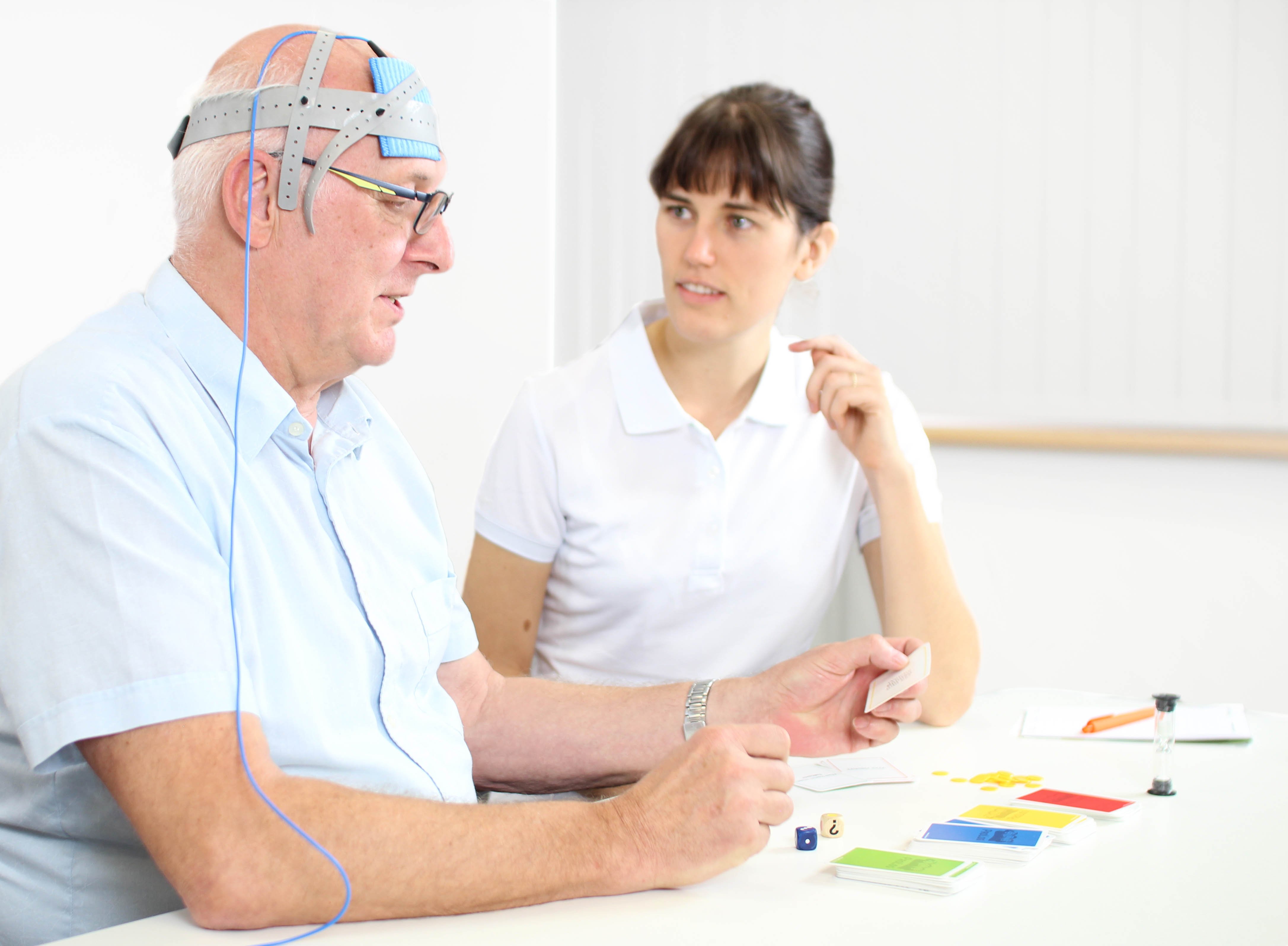tDCS for Cognitive Deficits
Learn more about the use of tDCS for Cognitive Deficits, how it works and the scientific evidence behind it.

Straight to:
Cognitive deficits refer to impairments in various aspects of cognitive function, which include memory, attention, problem-solving, language, and decision-making. When focusing on memory deficits specifically, individuals may experience difficulties in acquiring, storing, or retrieving information.
Memory deficits can be associated with changes in cortical activity in the brain. The cortex is the outer layer of the brain responsible for higher-order cognitive functions. Specific regions of the cortex, such as the hippocampus and the prefrontal cortex, play crucial roles in memory processes.
For example, the hippocampus is involved in forming new memories, and damage or dysfunction in this region can lead to difficulties in creating new memories (anterograde amnesia). Similarly, the prefrontal cortex plays a role in working memory, the ability to hold and manipulate information temporarily, and damage to this area can result in challenges in maintaining and processing information in the short term.
In conditions like Alzheimer's disease, which affects memory and cognitive function, there is evidence of reduced cortical activity in these critical brain regions. Neuroimaging studies have shown decreased activity and atrophy in the hippocampus and prefrontal cortex, which contribute to the cognitive deficits observed in such conditions.
Understanding the relationship between cognitive deficits, memory impairment, and cortical activity is essential for developing targeted interventions like tDCS. By targeting specific cortical regions, researchers aim to modulate brain activity and potentially alleviate memory deficits, offering hope for improving cognitive functioning in individuals with memory-related challenges.
What is tDCS?
Transcranial Direct Current Stimulation (tDCS) is a non-invasive, well-tolerated neurostimulation treatment. In practice, tDCS involves attaching an anode and cathode electrode to the head producing a weak electrical current that is applied to the brain. Several studies have shown positive effects on a range of conditions. tDCS equipment is easy to use, and the treatment is painless and safe. When combined with other therapies, tDCS can enhance their positive effects. Depending on the voltage, duration, polarity, and location of the electrodes, the applied current has an inhibiting or stimulating effect. tDCS modifies the resting membrane potential, either promoting or inhibiting the transmission of information. This allows the therapist to modulate neuronal excitability and activity levels.

Why tDCS for Cognitive Deficits?
The rationale for exploring the effects of tDCS (transcranial direct current stimulation) in cognitive deficits stems from the potential of this non-invasive brain stimulation technique to modulate brain activity. When individuals experience cognitive deficits, it means they have difficulties with certain aspects of their thinking, memory, attention, or problem-solving abilities. These deficits can arise due to various conditions like stroke, traumatic brain injury, or neurodegenerative disorders.
Researchers investigate tDCS as a potential intervention because it offers the opportunity to target specific brain regions and promote neuroplasticity, which is the brain's ability to reorganize and form new connections. By applying tDCS to regions associated with the cognitive functions affected, scientists aim to enhance brain activity and potentially improve cognitive performance.
Additionally, tDCS is safe and non-invasive, making it an attractive option for investigating cognitive enhancement without major risks. Its potential benefits could extend to a wide range of cognitive deficits, providing hope for individuals facing challenges with memory, attention, and other cognitive processes.
Overall, exploring the effects of tDCS in cognitive deficits is driven by the desire to discover novel and effective ways to enhance cognitive functioning, potentially leading to better treatment options and improved quality of life for individuals with cognitive impairments.
Is tDCS for Cognitive Deficits scientifically proven?
tDCS has ‘Level C’ evidence as a treatment for Cognitive Deficit, which is considered to be ‘possibly effective’. At this level, evidence is derived from expert opinion, case studies, or standard practice. It carries the least weight in terms of scientific rigor, compared to Level A and B evidence, but may be used when higher levels of evidence are not available.
In this study by Ruf and colleagues in 2017, researchers tested a brain stimulation technique called transcranial direct current stimulation (tDCS) on working memory (WM) performance in healthy adults. They focused on the dorsolateral prefrontal cortex (dlPFC) region of the brain, which is involved in WM.
Participants trained on spatial or verbal memory tasks while receiving either real tDCS (active) or fake tDCS (sham) in a randomized experiment. The researchers found that when tDCS was matched with the same type of memory task (spatial-right with spatial task or verbal-left with verbal task), the participants showed faster learning and improved memory performance compared to sham stimulation.
The interesting part is that these benefits lasted for up to nine months, and participants also improved in untrained tasks similar to the ones they trained on. This suggests that tDCS can have long-lasting and transferable effects on specific types of memory tasks, which could be useful for treating memory-related disorders.
Overall, the study indicates that tDCS paired with specific memory training could help enhance memory abilities, leading to potential applications in treating memory-related conditions.
Scientific articles on tDCS for cognitive deficit
Disclaimer
The information on this page is general in nature and is not intended to be a substitute for professional medical advice. Please speak with your doctor about your options for treatment.
tDCS Online Course
If you are a healthcare professional interested in learning more about tDCS, start with neurocare's online course on the LMS.
tDCS Devices & Accessories
*For Healthcare Professionals and Researchers Only.* Explore the neuroConn DC-STIMULATOR product range for clinical practice and research.
Find a clinic
Seek innovative and personalized treatment at a clinic near you
I'm a clinician
Learn more about our platform, innovative technologies and training academy for health professionals and researchers.
I'm an investor
Learn more about our vision and plans for growth and access our Investor Room.
Stay up to date with the neurocare platform and our network of clinics
Stay up to date with our platform and clinics
Copyright © neurocare group AG 2025





